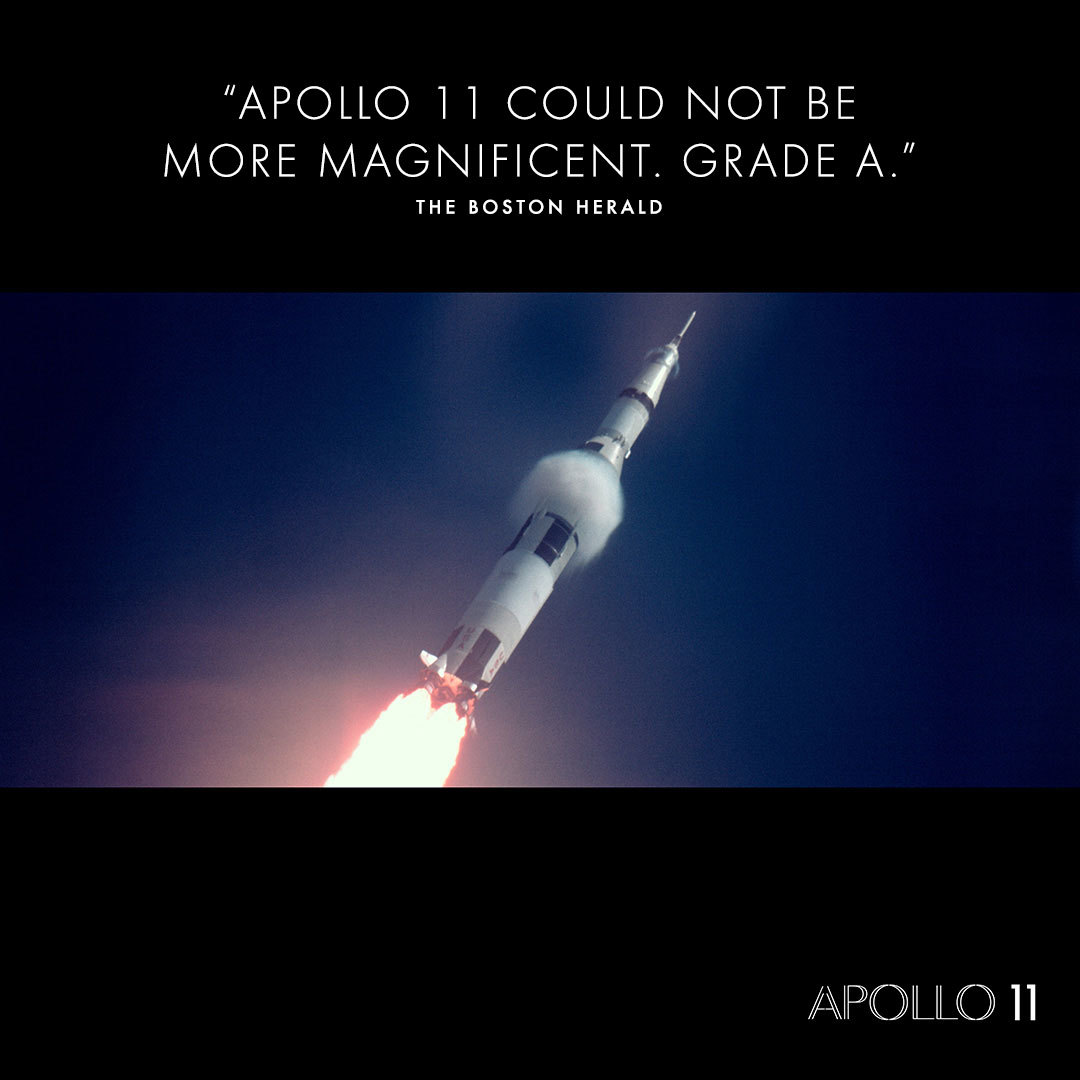
by Chris Doyle | Mar 22, 2019
Greetings!
Loving this weather! I hope you are too!
Here’s my thoughts on some interesting topics that have been
shared this week. Thanks for reading!
1. Mohler on Clarence
Thomas
It is no secret that I enjoy listening to Albert Mohler’s The
Briefing. I think it is one of the best regular Christian commentaries on world
news. Mohler gave an excellent report in Thursday’s
Briefing on Supreme Court Justice Clarence Thomas, after an article was
published criticizing Thomas’ conservative approach to presiding on the bench.
This is great narrative that Mohler offers because he points out historic, trivial and Christian worldview elements about Thomas, who is a fascinating figure in the highest court in the land.
You should listen or read Mohler’s dialogue entirely, but
here’s a great passage:
“One of the issues for us to
understand is that there’s a parallelism between liberal interpretations of the
Constitution and liberal interpretations of scripture. It’s not by accident.
There’s a parallelism between conservative interpretations of scripture and
conservative readings of the United States Constitution. Justice Thomas is
really hated by the left because he is perhaps the most consistent conservative
interpreter of the Constitution currently serving on the United States Supreme
Court.”
There’s more to this, and I
love it all. Check it out for yourself.
2. Liberty “most hated”
It was brought to my
attention that the two “most hated” teams in the NCAA Men’s Basketball
Tournament are Liberty University and Abilene Christian University, according
to a group called “Deadspin.” I am not going to share the link to the article I
read because of the profanity spewed.
This has much to do with the
ridiculous perspective on the two schools observing conservative Christian
standards, specifically on the belief that sex should be observed in a biblical
marriage relationship. From this, Deadspin and other political groups interpret
this standard as being against LGBTQ views.
Abilene Christian was
defeated in the first round against Kentucky. Liberty faces Mississippi State
this evening. Liberty also is my alma mater. I don’t expect them to go far, but
wouldn’t it be fascinating if the Flames found some success just to see what
kind of reaction groups like Deadspin would have.
3. San Antonio against Chick Fil A
Speaking of more “hate,” the city council of San Antonio is stirring up hate against Chick Fil A, because the fast food chain made donations to groups like Fellowship of Christian Athletes and Salvation Army, claiming these organizations are “against the LGBTQ community.”
David French believe Chick
Fil A has a powerful
case against San Antonio.
“San Antonio is defying the law,” French wrote, “it’s
further polarizing our country, and it’s telling the Christian citizens and
Christian ministries in its own city limits that their beliefs are so repugnant
that the government should punish even private organizations who support their
work.”
Here’s why French thinks Chick Fil A will win big if they
decide to sue:
“Simply put, the government may not condition the ability to
operate a business on the government’s distaste for the religious or political
donations of its owners.”
4. A modern take on
church discipline
Church discipline, as prescribed in Matthew 18, can be difficult to administer in today’s world. I have been a part of churches that attempted to follow Matthew 18 with good intentions, but the end result made situations even messier with greater (more public) divisions, as well as wrong conclusions.
I share this not to say Matthew 18 is not applicable for the church today. It most certainly is! But prayerful, humble discernment by church leaders is a requirement, along with pure hearts, thorough planning and the leading of the Holy Spirit.
This does not directly relate to Jen Oshman’s blog that I’m sharing, but
after reading her piece on the
correct application of Matthew 18, it made me realize how many misapply
Jesus’ teaching of church discipline. Oshman gives a great response to those
who have criticized her book reviews.
5. The church that
has rockers
My co-worker Emily Howsden made some serious social media
noise with her article on Skiatook,
First adding rockers in the church’s sanctuary. This innovative move allows
mothers with newborns to attend regular worship services.
The article was a major hit as it was shared 75 times on Facebook and reached than 12,000 people.
6. LifeWay is leaving
Major news also came this week as LifeWay Christian Resouces
decided to close
all of its regular stores and go completely online. Obviously, this is due
to declining sales, as online shopping is becoming more popular.
I am disappointed with this decision, though I do understand.

by Michael Foust | Mar 22, 2019
The film ‘Unplanned’ opens in theaters March 29, telling the true story of a Planned Parenthood director who quit her job to become a pro-life advocate.
Abby is an outgoing and friendly college student who is
still uncertain what she believes about life—literally and figuratively.
Thus, when a Planned Parenthood worker at a university event
asks if she’s interested in volunteering at the clinic, Abby barely hesitates.
Yes, her parents won’t approve, but Abby wants to help women.
Her task: escort the patients from the parking lot to the
front doors, shielding them from the pro-life protesters.
Abby—it turns out—enjoys it. She’s making a difference.
She’s protecting women. At least, that’s what she tells herself.
Pretty soon, Abby’s role progresses from volunteer to paid
employee. And eventually, she becomes clinic director.
Her pro-life Christian parents hate her job, but she doesn’t
care. Besides, there are religious people in the pro-choice community,
too.
“I don’t care what anyone says,” a co-worker
says. “I am doing God’s work here.”
But then Abby is asked to help with an
abortion. And then she witnesses, first-hand, the moral horrors it entails. And
then she begins having doubts about her beliefs on abortion.
The film Unplanned
(R) opens in theaters March 29, telling the unlikely true story of Abby
Johnson, a former Planned Parenthood director who quit her job to become a
pro-life advocate.
It stars Ashley Bratcher (90 Minutes In Heaven) as Abby; Jared Lotz as Shawn, a pro-life
worker with 40 Days for Life; and Emma Elle Roberts (I’m Not Ashamed) as Marilisa, another worker with 40 Days for
Life.
The film begins with the pivotal abortion
scene but then jumps back eight years to her college days, showing how she
climbed the ranks to become clinic director.
Its filmmakers were aiming for a PG-13 rating
but got stuck with an R—an undeserved rating that can only be described as one
of the worst decisions in the history of the ratings board. The R is for “some
disturbing/bloody images.” Yet broadcast television regularly exceeds the
disturbing and bloody content of Unplanned—as
does every PG-13 superhero film in the last decade (More on that in a moment).
Despite the rating, Unplanned is appropriate for teens and mature tweens.
Warning: minor/moderate spoilers!
(Scale key: none, minimal, moderate,
extreme)
Violence/Disturbing
Moderate. The film deals with the subject of abortion, but
it never shows an abortion from the perspective of the doctor, even though we
are in the room. We see an abortion take place on a computer screen (a
sonogram), as the small baby is in the picture one instance and gone the next.
We see a clothed woman sitting on a toilet, blood dripping off the seat. She
steps in the shower (still clothed) with blood dripping down her leg. She picks
up a bloody blob off the floor and puts in in the toilet (presumably it was the
small baby). In another scene, a father pressures a teen girl to have an
abortion; there are complications in the room, but she survives. Still another
scene shows pieces of an aborted baby on a table. All total, these scenes last
perhaps five to 10 minutes. Most of the movie focuses on Abby’s journey.
Sexuality/Sensuality/Nudity
Minimal. Two people kiss.
Coarse
Language
Minimal. H-ll (2), d–nit (2), a– (1).
Other
Positive Elements
The film contrasts the peaceful, prayer-filled protests of
40 Days for Purpose (Shawn and Marilisa) with
that of protesters who are screaming unkind words toward the women. It’s
obvious which strategy works best.
Abby’s pro-life parents accept and love her unconditionally,
even if they strongly disagree with her job.
Life Lessons
Unplanned gives us lessons on patience and
prayer (Shawn and Marilisa, Abby’s parents), blindness to sin (Abby), and
unconditional love (Abby’s parents and husband).
Worldview/Application
There have been more than 60 million abortions since the
1973 Roe v. Wade decision legalized
the procedure nationwide. And despite the best efforts of pro-lifers, roughly
half the country still considers itself pro-life. Why?
Perhaps Americans are just like Abby Johnson once was. Maybe
they are pro-choice because they never have to think about abortion. They never
have to watch an abortion. They never have to consider the ramifications of
their stance. It takes place in a private clinic, in a private room, behind
closed doors.
This doesn’t mean it’s necessary to watch an abortion to
change from pro-choice to pro-life. But it does mean that when we consider what
abortion is and what it involves, we are faced with a moral choice that many
people would rather avoid.
What Works
The interaction between Abby and the pro-lifers. The
screenplay and the film’s structure. It makes for a gripping story. The movie’s
final 30 minutes is emotion-laden and well done. It ends on a high note.
What Doesn’t
One or two scenes are over the top and could be viewed as
propaganda by the pro-choice community.
Discussion
Questions
1. What does the Bible say about the unborn? (See Psalm 139,
Jeremiah 1:5.)
2. What did the first Christians think about abortion? (Google
the “Didache and abortion.”)
3. What led Abby to change her mind about abortion? Do you
think there are other people like Abby in our society?
4. Did the film change how you view abortion and Planned
Parenthood? Explain.
Entertainment rating: 3.5 out of 5
stars. Family-friendly rating: 3.5
out of 5 stars.
Rated R for
some disturbing/bloody images.

by Michael Foust | Mar 22, 2019
A new documentary, appropriately named ‘Apollo 11,’ brings the 50-year-old mission to life, thanks to a newly discovered batch of film.
Apollo 11’s mission to the moon was among the greatest achievements
in world history, but—sadly—it wasn’t captured with today’s high-definition
video cameras.
Instead, we’re left only with grainy footage showing Neil
Armstrong stepping on the moon and Walter Cronkite describing the action.
Then again … maybe not.
A new documentary, appropriately named Apollo 11 (G), brings that 50-year-old mission to life, thanks to a
newly discovered batch of 65mm film and more than 11,000 hours of uncatalogued
audio recordings—most of which we’ve never seen or heard.
The result is a 90-minute movie that nearly has the
appearance of being filmed yesterday and makes you feel like you’re living in
1969.
It’s among the best documentaries I’ve seen and—minus two moments
of coarse language—is squeaky-clean for the entire family.
It was directed and edited by Todd Douglas Miller, who is
best known for his work on another documentary, Dinosaur 13. He said he wanted to avoid using the footage the
public already had seen.
“I’m such a fan of space films, and when we started this
project, I was seeing everything again ad nauseum, so I knew what was out
there,” he told the entertainment site MoveableFest.com.
Miller succeeded in his quest. For example, the iconic black-and-white
film of Armstrong stepping down the ladder isn’t even in the movie. Instead, we
watch a color film that was recorded inside the lunar lander by his crewmate,
Buzz Aldrin.
The rest of Apollo 11
follows a similar pattern, as we enjoy never-before-broadcast footage of event
after event. Instead of grainy television footage of the launch, we’re treated
to an up-close 65mm footage of the rocket lifting from the pad and piercing the
clouds. That alone is worth the price of admission.
The movie also succeeds because it has no narrator. We only
hear the astronauts, the Mission Control workers, and, of course, Cronkite. His
booming, nostalgic voice sets the tone.
“It’s three hours and 32 minutes until man begins the
greatest adventure in his history,” Cronkite says at the beginning “If all goes
well, Apollo 11 astronauts Armstrong, Aldrin and Collins are to lift off from
pad 39A out there, on the voyage man has always dreamed about.”
At the beginning of the movie, we watch the mammoth Saturn V
rocket make its way to the launchpad on the crawler-transporter. Later, we see
the astronauts donning their suits and climbing into the capsule. The movie
ends with the world celebrating their return.
Yet it’s the miniscule details, recorded on once-forgotten
footage the day of the launch, that makes the documentary entertaining:
Americans drinking coffee on the beach, lining up at concession stands, waking
up in a Florida campground, and cramming together on a hotel balcony—all ready
to see history being made. It happened when coffee was 5 cents, beehive
hairstyles were in, and everyone wore crazy-looking glasses (Yes, those details
are in the film, too).
Apollo 11 is a must-see film for those who
lived through it and those who are just learning about it in school. It’s
inspiring and educational, and it contains a few edge-of-your-seat moments you
likely didn’t expect. It’s a celebration of achievement, teamwork and our
shared humanity.
It also raises a few worldview questions, led by Buzz
Aldrin’s pronouncement that the mission was a symbol of the “insatiable
curiosity of all mankind to explore the unknown.” But why do we have this insatiable desire to explore? Perhaps it’s
because God planted within us a hunger to discover what’s out there. Perhaps
it’s because God’s universe is so incredible it’s worth exploring. Or perhaps
it’s because we have the imago dei—the image of God—that gives us the ability
to build rockets and learn more about what God’s creation.
Whatever the reason, Apollo
11 is worth watching.
Discussion
questions
1. Why do you think mankind has the desire to explore the
unknown?
2. Was the Apollo 11 mission worth the cost?
3. What do you remember about Apollo 11? Where were you?
(For children: Ask a parent or grandparent what they remember about the
mission.)
Content
warnings: The film contains no violence or sexuality and two coarse words (h-ll
heard in the John Stewart song Mother Country, and a muffled “d–n” by Collins
from space when he says he feels “d–n good.”
Entertainment rating: 4 out of 5
stars. Family-friendly rating: 4.5
out of 5 stars.
Apollo 11 is
rated G.

by Emily Howsden | Mar 18, 2019
Have you ever kept a journal? I have almost always kept a journal. I have journals that go back to my elementary years, where the content is light hearted and I talk about birthday parties and family trips.
As my high school years began, I talk about college plans, boys, church youth group trips, and the content starts to have more depth. I kept a journal for my now husband all while we were dating, in which I prayed for him and proclaimed my love for him much sooner than I ever uttered the words. I presented him with the journal on our wedding day.
Fast forward to the journal I keep today, and it is where I pour out my feelings of joy and fear, peace and conflict, you name it. If I’ve felt it, I most likely have written about it. It is also where I can most clearly call out to God and communicate my burdens, praises and all types of prayers.
At times, it has felt a little laborious. I am naturally someone who just enjoys writing, but just like in my relationship with Christ, there have been peaks and valleys. What a blessing it is to be able to look back at different times of my life and see how the Lord was working.
There are times when I look back, and I’m surprised and mildly terrified at myself because of superficial or selfish requests. There are times when I look back and thank the Lord for the growth I experienced during that period and how I drew closer to Him.
My journals are also such a sweet reminder of how the Lord has been good to me, over and over again. When my husband and I began to plan our family, I prayed for a baby. The Lord delivered! I journaled throughout my pregnancy, praying for a healthy baby with a peaceful disposition and joyful heart. The Lord delivered! Time and time again, there is proof of the Lord granting the desires of my heart.
The opposite is also true. There are times I’ve prayed for certain things, and the Lord chose not to grant my prayers. At those times I was confused, hurt, maybe even a little angry. I have asked God, “Why not?” many times. But always, down the road, His omnipotence has proven itself, as I later see how His plans for my life are never failing and full of goodness.
I say all of this to encourage you, friend, whether you like to write or not, to keep some form of a journal. Maybe for you, journaling looks like a few sentences each night. Maybe it looks like a note kept in your phone. You could even begin a digital journal and keep it for yourself, or share it in the form of a blog.
I personally love to take pen to paper, and I don’t do it
nightly—I journal about once a month, more depending on what is going on in my
life—but the fun thing about journaling is you can choose to do it however you
please!
Keep record of what God is doing in your life, it is a sweet reminder of his faithfulness and goodness.

by Chris Doyle | Mar 15, 2019
Greetings!
So much is happening right now that it’s hard to sit down
and write an elaborate DHD. A day will come soon when I can share extensive
thoughts. But, just like last week, think about these comments that I found
interesting from articles I read this week.
1. “We have to be
more for justice than the fallen world because justice comes from God. What we
have to make sure, first and foremost, is that the Gospel is clear”—Al
Mohler
2. “Activities like giving birth and nursing are creational,
not social. Reproduction is basic to how God designed us. People are male or
female in every cell of the body, in both nerves and hormones—not in the
reproductive organs alone”—Dan
Doriani
3. “From personal experience, there are times when black
people and white people get to joking. It can be good-natured to start. Then,
there’s a very fine line, a breaking point you could call it, where something
is said that strikes a nerve. As a black person, you don’t know if it was
intentional, sheer ignorance, or what, but it’s 100-percent uncomfortable and
digs at the core of your humanity. Suddenly, you don’t feel like joking
anymore. Even if I haven’t reacted like (Russell) Westbrook did, I’ve felt the
emotion of Westbrook and wanted to react. It’s a unique, painful, frustrating
feeling”—Erik
Horne, Oklahoman Thunder beat
writer about Westbrook’s confrontation with a fan when the Thunder played at
Utah this week.
4. “As cohabiting becomes
more commonplace in our society, the lines between getting married and just
moving in together can begin to blur, making it harder for young people to
recognize what is so special about the marriage vow. But despite prevailing
myths about cohabitation being similar to marriage, when it comes to the
relationship quality measures that count—like commitment, satisfaction, and
stability—research continues to show that marriage is still the best choice for
a strong and stable union”—Bradford
Wilcox
5. “Treating Genesis as if it were a purely human document
leads to distortions because Genesis claims to give an account of very early
events, including the creation of the world before any human beings existed”—Vern
Poythress
6. “(St. Patrick) was motivated to be sure, though not by
greed… Patrick’s motives were pure and exemplary of what should animate
missionary passion even today”—Andrew
Ballitch

by Michael Foust | Mar 15, 2019
The romantic drama ‘Five Feet Apart’ opens this weekend, telling the story of a man and woman with cystic fibrosis who fall in love.
Stella is an energetic and optimist young woman living in a
world where hopelessness abounds.
She has cystic fibrosis, a chronic disease that causes mucus
to accumulate in her lungs. Her life expectancy is a few days, a few months or
a few years. No one knows.
Her home is the hospital, where she patiently awaits a lung
transplant while getting regular check-ups and closely following her drug regimen.
She vlogs about her condition. She also lives vicariously
through her friends, who visit her often and video chat with her from locations
she can’t go. They tell her about the things they do and the men they date.
But lately, Stella has had her own budding romance. It’s
with Will, another cystic fibrosis patient who has a similar prognosis. In many
ways, they’re polar opposites. Yet they bond over their common battle against a
disease that could take their lives.
Can it last? And can they continue a romance while following
a hospital rule that requires them to never sit close, hug or hold hands—much
less kiss?
The romantic drama Five
Feet Apart (PG-13) opens this weekend, telling the story of a couple who
must decide if their love for one another is worth risking physical contact
that could cost them their lives. The film gets its name from a hospital rule
that cystic fibrosis patients must remain at least six feet apart to prevent
cross-contamination. Stella and Will decide to cheat and stay five feet apart—or
as Stella says, the length of a pool stick.
It stars Haley Lu Richardson (Split) as Stella, Cole Sprouse (Riverdale)
as Will and Kimberly Hebert Gregory (Vice
Principals) as their nurse, Barb.
The film succeeds as a romance—albeit, with some content
concerns—while raising some of the most significant questions about life and
death.
Warning:
minor/moderate spoilers!
(Scale key:
none, minimal, moderate, extreme)
Violence/Disturbing
Minimal/moderate. Patients spit up mucus. A character dies;
we see a nurse performing CPR, and then we see people grieving. Death is
discussed often.
Sexuality/Sensuality/Nudity
Moderate. The film has no nudity or bedroom scenes but does
include basic discussions about sex (without detail). Stella and Will strip
down to their underwear to show each other their scars. One cystic fibrosis
patient, Poe, is gay. His dating relationships with other men is mentioned
several times. He says he loves one of the guys.
Coarse
Language
Moderate. S–t (11), OMG (5) d—n (3), misuse of “God” (2), a– (2), GD (1),
f-word (1), b–ch (1).
Other
Positive Elements
Stella’s friends are role models for how people should treat
those with chronic diseases. They go out of their way to improve Stella’s life.
Life Lessons
The film’s opening scene shows a baby while emphasizing the
importance of human touch— something we take for granted but something Stella
and Will are unable to experience. Whether it’s a hug, a peck on the cheek or a
pat on the back, we need human touch “almost as much as we need air to breathe,”
as the movie puts it. What would it be like not to be able to hug your family
or friends? That’s the reality for Stella and Will.
Worldview/Application
If you had a chronic condition and knew you could die at any
time, how would you live differently?
Stella and Will approach this question differently. She
wants to follow the drug regiment perfectly, holding out hope for a cure. He is
just the opposite and often skips doses. But neither is living life with the right
balance. One thinks only about medicine. The other is careless about his life.
Finally, Stella sees the error in her ways: “This whole time
I’ve been living for my treatments instead of doing my treatments so that I can
live. I want to live.” Perhaps we should ask: Are we living life with joy? Or
are we so busy that we’ve forgotten God’s many blessings and the simple
pleasures of life?
The movie also encourages us not to fear death. Faith isn’t
mentioned, but Stella believes in an afterlife. Will does not.
“I refuse to believe” there is no afterlife, she says.
As Christians, we can have the boldness to face death
without fear (1 Thess. 4:13-18).
Discussion
Questions
1. Are you more like Stella or Will? Why?
2. If you had only a few weeks to live, how would you live
differently than you are now? Why aren’t you living that way right now?
3. Why is human touch so important? How is it different from
mere words?
Entertainment rating: 2.5 out of 5
stars. Family-friendly rating: 2.5
out of 5 stars.
Rated PG-13 for thematic elements, language and suggestive material.
PHOTO CREDIT: CBS Films




